— 14th January, 2024 —
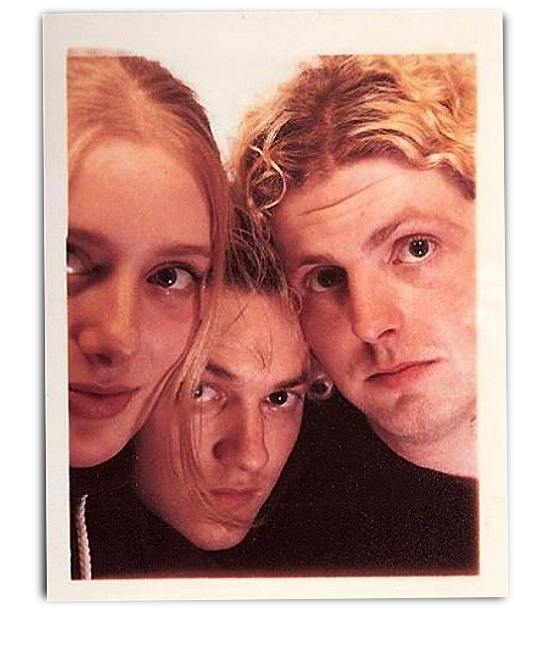
This is a story that begins with the organized rape of an Exeter student who was a friend of mine; a cover-up and, subsequently, my sexual assault by a group of students and faculty for daring to expose corruption, embezzlement, and the manslaughter of a professor at Exeter University. Some of those who participated in the attack on me are now journalists who write your world 'news'. One of them is a politician. To this day, they continue to withhold evidence.
Decades after being attacked, and forced to leave Exeposé, I am finally able to publish the most important story I ever covered on the student newspaper. This is an investigative report I began in my twenties. This story will not win me any awards (real journalism is no longer rewarded); it will also enrage those whose careers in journalism are founded on a lie. Finally, it will likely destroy Exeter University — as it should.
When exposing abuse, every ethical journalist must ask herself, "Who should I name?" Sometimes a report (like mine) is so devastating that it will collapse careers; tear apart families; jail people. The answer is simply this: That when preventing the abuse of young people, the ethical position is clear: Everyone participating in the ongoing abuse of students should be named. This is the ethos in which I write.
In this article, I will be exposing major journalists who have worked for the NME; Google; Ofcom and others. These journalists worked alongside me as a student. I watched as they were turned by Exeter University, from bright, young, intelligent kids, into the demi-gorgons that we find prowling the media landscape today. I will show how this is done; why it is done; and how we can stop it.
During the course of investigating Exeter University, I encountered an omertà (a mafia-like code of silence) from almost everyone who was a journalist on Exeposé with me. The reasons for this silence will soon become obvious to the reader.
During my time at Exeter University, Rowena Jones was bound by her hands and feet and raped on Exeter campus. Rowena was a friend of mine. When she reported her experience to the police, they collaborated with the university to silence her. Rowena was forced to recant her testimony and, bizarrely, to claim that she had tied herself up for attention.2
Rowena was then jailed because she had, they claimed, wasted police time. This clearly sent the intended message to Exeter students: Speak out about rape and we will silence you; we will jail you.
Rich Thurston, then co-Editor of Exeposé, subsequently wrote a news story3 in which he claimed that Rowena had "cried rape on campus". This was a parroting of the University's position. Rich Thurston did no investigation into the crime, and conducted no interviews. His article was based entirely on a single statement made by Exeter University's own PR department.
Interestingly, when I began to speak out on the paper about the risks to students on campus, I had my hands and feet forcibly bound together with industrial-tape by two students. The other co-Editor of Exeposé, Jared Mark Wilson (pictured above, on the right) subsequently published a photograph4 of this assault in the campus newspaper. Wilson would later become President of Exeter University. Like Rowena, I was publicly-shamed for speaking out.
This assault was just one attempt by Exeter University to discredit me, and to scare me — and others — away from asking questions about Rowena's story. Later, I was physically attacked by Exeter University again. This time to derail me from my work on the paper exposing provable-embezzlement by University management; investigating the financial-collapse of the Economics Department; and exposing a case of manslaughter perpetrated by Exeter University. In short: Exeter University's management did not like a functioning media.
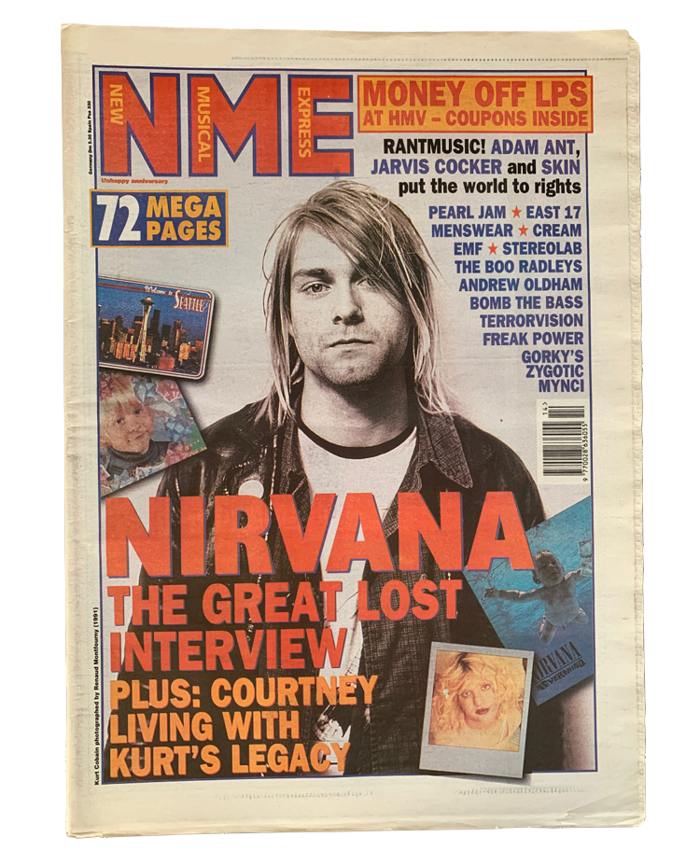
Cat Goodwin (now Cat Marshall) was Music Editor during my time at Exeposé. She later wrote for the world-famous music newspaper, NME and married the paper's former News Editor, Julian Marshall.
In a phone interview5 with me, Cat confirmed that she and Julian Marshall are in possession of a set of back-issues of Exeposé, the student newspaper on which I worked, but they refuse to provide me with copies of these.
I made it explicitly clear to Goodwin (we will use her original name for clarity) that I sought these back-issues in the interest of protecting children and solving a serious crime. Goodwin again6 refused to provide this evidence. Fortunately, I acquired most of these newspapers from another source. They are damning.
Half way through my phone call with Cat Goodwin, I asked that she call me back. Goodwin told me that she would have to ask permission from her husband, Julian Marshall, because he controlled the phone.
This reminded me of an NME cover-story7 during Julian Marshall's News Editorship at the paper, it showed musician Avril Lavigne and announced "All Hail the Heroines of the No-Cock Revolution" Clearly, years later, the NME's women's-liberation campaign remains in its infancy. Those with "no-cock" in Julian Marshall's home must still ask permission even to use the phone.
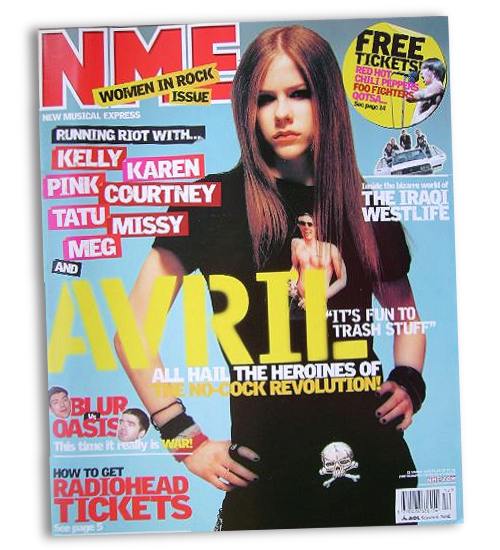
I was close friends with Cat Goodwin shortly after we left university in 2001. Cat went to teach English in Takefu, Japan, and I remember a similar problem with an international-phone-call and her father, Jeff Goodwin. Readers will recall Freud's theory8 of the 'Compulsion to Repeat' in which we unconsciously seek to recreate our family-home in adulthood; in an attempt to resolve its traumas.
Cat's father, Jeff Goodwin was similarly controlling regarding phone-calls and his adult daughter's right to make them. But more significantly, Jeff's favorite films were Stuart Little (1999) and Hollow Man (2000); Jeff insisted that Cat and I watch these with him.
Hollow Man is basically an S&M porn movie in which a scientist renders himself invisible so that he can spy on a naked woman, rape her, and beat her. Stuart Little was a thinly disguised metaphor for child-abuse, and includes a scene in which a known pedophile9 introduces people into what appears to be a Freemasonic Temple.
Generally, as a young person, when parents insisted on watching clusters of these types of movies it was a prelude to something much worse; a process of grooming and boundary-testing. Jeff Goodwin had previously worked for many years as a cameraman for the BBC.
Since the exposure of Jimmy Savile, the BBC has been very good at concealing specifically which shows their camera operators worked on. Evidencing Jeff's professional trajectory to becoming his adult daughter's warden, and gaining his taste in cinema, is therefore difficult.
Surviving records10 show that Jeff Goodwin worked in camera "Crew 12" in the "Television Technical Operations Department" at the BBC, from at least 1979 onward. His Senior Camerman was George Baxter who worked on shows like Chock-A-Block (1981). What is known for certain is that, during this era, many BBC 'cameramen' collaborated with Savile, and others, to abuse over 1,000 children on BBC property. The BBC continues to withhold the names of all of these men, and no 'cameraman' has yet spoken out.11
During Jeff Goodwin's time as a 'cameraman' at the BBC, there were over one-hundred camera-operators on full-time staff. Zero of these camera-operators were women. This was, obviously, decades before the NME's "no-cock revolution" campaign and so, in British society, it was still "acceptable at the time" to exclude women almost entirely from the BBC studio floor. This exclusion obviously served another useful purpose, as these BBC crew-members were free to molest children in the building without the intervention of women who might stop them.
Jeff Goodwin was keen on sharing his sexual-fantasies with his daughter during her childhood. Cat once told me that her father would remind her that he had "slept with a James Bond girl". It was unclear why Jeff wanted to discuss this topic with a child. His James-Bond-story was also implausible, given that BBC-trained 'cameramen' of the era were generally more interested in children.
Given that Cat Goodwin is a survivor of her father, and that she was assaulted at Exeter (we will get to that later), it is little surprise that she should find herself in partnership with Julian Marshall, who has worked for Google, and (like Cat's father) the BBC. These two corporations are among those most responsible for silencing the voices of sexual-abuse survivors across the world.
Some readers may feel my assessment of Goodwin is abrasive, given that she was once a victim of the same groups she now participates in supporting. However, both Cat Goodwin (pictured at the top of this article, on the left) and Julian Marshall (pictured below) worked for many years at the NME, a magazine famous for its caustic reviews and tendency to rip-apart anything in the music-scene that smiled in the wrong way.
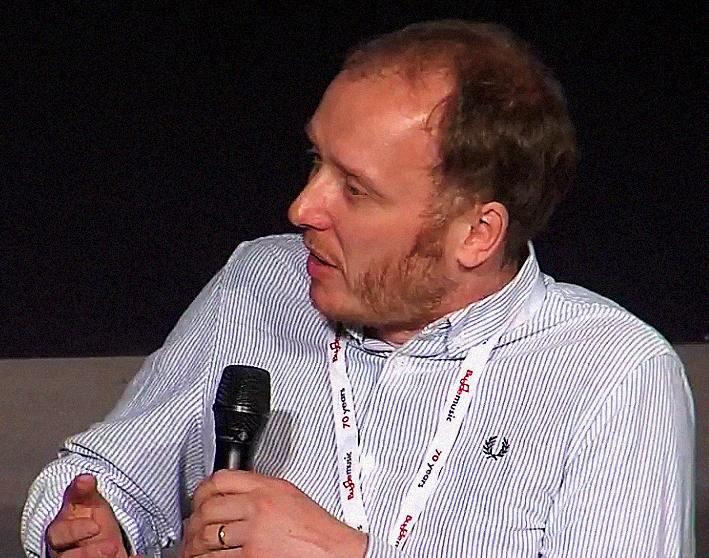
Famously, the NME described Michael Jackson's degeneration (through self-harm via plastic surgery) into a "spinal column in a fedora hat." While it might have been more useful to report on Jackson's ongoing abuse of children at the time — or Jimmy Savile's — the NME did not have any news journalists in the traditional-sense of the word. The writers there were grossly negligent at best; willfully destructive at worst.
The NME was not run as reportage, but instead it was fueled by the bitterness and jealousy of its staff 'journalists' who were so profoundly unable to strum a guitar that they struck out at almost anyone else who dared try. Clearly the NME's hate-rant style of 'journalism" was one that both Goodwin and Marshall enjoyed supporting for years. I suspect they will inevitably applaud its revival in this article, or otherwise seriously self-reflect on their entire careers.
Cat Goodwin's time at the NME left her practically unable to write. When I knew Cat as an Exeter student she was a fiercely-intelligent, sharp journalist. But at the NME she was viciously-overworked, to the point of injury, by the former editorial team — one of whom still controls her phone-calls.
Even while at the NME, Cat was barely granted a byline. Her dream of journalism turned to administrative-bureaucracy. Perhaps, if allowed to write more news for the NME (and if she had not been abused), Cat might have exposed Jackson or Savile sooner. We will never know as Julian Marshall and the NME did not employ her (or anyone) in an investigative role. The NME's News department was significant only in one regard during Julian Marshall's reign at King's Reach tower in London: Its impressive ability to avoid any actual reporting.
Cat now suffers from RSI (repetitive strain injury). She cannot type without pain. But, then, nobody who worked alongside me on Exeter's Exeposé can type without pain. Betraying the profession of journalism, hiding the truth, withholding evidence, and perpetuating a university system that abuses its students is a painful way to live.
Rich Thurston was co-Editor of Exeposé and later worked for a division of the UK's Ministry of Communications, Ofcom. Thurston wrote the "cry rape" story about student Rowena Jones who was pressured — by Exeter University and police — into recanting her report of being bound and raped on Exeter campus.
Thurston's later employment by Ofcom is, in retrospect, fitting for a reporter of his calibre as he was known on Exeposé for his keen-alignment with the position of University management over the students. Thurston was instrumental in forcing me off the paper when I spoke out against corruption at Exeter University.
Thurston's prior employer, Ofcom, is a UK Government-affliliated censorship and regulation committee, endorsed by the British Crown.
My final article12 for Exeposé exposed inadequate lighting and security around the campus library. The University management were so incensed by this article that they demanded a front-page apology. Thurston (pictured below) aligned himself with the University's position — as he had with the University's position on Rowena Jones. He then allowed Exeter University management to commandeer the front-page of Exeposé.
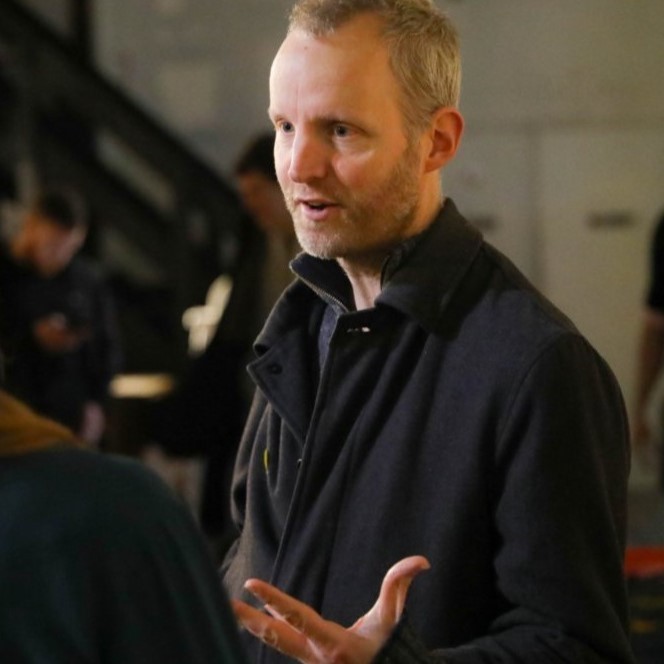
Learning that Exeposé's independence was compromised to the extent that the Univerity could simply, at will, take over any page it wished to, I resigned from Exeposé well in advance of publication of the next issue.
Thurston's reponse? Rather than remove my name from the credits in Exeposé, Thurston, and co-Editor Jared Wilson, decided also to add my middle-names to my regular credit in the paper.13 This ensured that it appeared as if I had signed an apology I never made, and did not endorse. Rather than remove my writer's credit from Exeposé, these Editors decided, instead, to emphasize it.
The reader can draw their own conclusions on why, after Rowena was bound-and-raped (partially on account of inadequate security and lighting on the University campus), an article drawing attention to these shortcomings was so offensive to the University that they would destroy the credible-independence of the campus newspaper, and coerce the Editors to sign my name next to a statement that I did not make.
This modus-operandi, however, was standard at Exeter University. There was a clear fracture in the minds of management there; a failure to understand consent. The broad fault-line of this fracture ran through time; a chasm leading from Rowena's rape through to my expulsion from the Exeposé newspaper, and beyond.
Rowena Jones did not consent to be molested; I did not consent to be assaulted; and the 'apology' the University forced onto the front-page of the campus paper was not written with the consent of those who had apparently signed it. I explicitly resigned from the paper because I did not want to denigrate truth and integrity. Exeter University, like all abusers, simply could not understand the word "no".
In the years since leaving Exeter, Richard Thurston has influenced and implemented government policy in the UK via Ofcom. Such a role was perfect for his professional skill-set. Thurston actively participated in the cover-up of the rape of a student at Exeter and, subsequently, published a front-page story misrepresenting the views of a journalist who had clearly tended their resignation in the face of Exeter University's corruption. Where does such a flexible code-of-ethics eventually lead a person like Thurston?
Thurston currently works as a "Research Manager in European Security Services" for IDC. His betrayal of Rowena Jones; his endorsement of (one of) my assaults; and his destruction of the editorial integrity of Exeter's student-newspaper appear to have led Thurston to the inevitable terminus of an incomprehensible-role in a three-letter agency owned by a New-York-based investment-management company. Crime does not pay, unless you seek mediocrity as your treasure.
Some readers may feel that enough time has passed that Rowena Jones' destruction at the hand of Exeter University should be quietly forgotten, but unfortunately its consequences are writ-large across today's media.
Exeter University itself concedes that my story poses an ongoing risk to their business. When I requested a full set of scans of Exeposé from the University archive, I was provided with all News sections from my time on the paper, but one issue was missing.14 Curiously (or predictably) this missing issue of Exeposé was the one containing Rich Thurston's desecration of Rowena. Had someone removed this issue from the University archive? Or, did they hope that I would simply not notice its omission?
I acquired this missing issue of Exeposé from another source, and it is horrific. In the course of locating it, I contacted15 the former publisher of Exeposé, the Express & Echo newspaper in Devon. An editor there also attempted to obstruct me from locating this missing issue.
The current Print Production Editor, Nick Warren, denied that the Express & Echo held any back issues of Exeposé, telling me, "we don't hold any archives of Exeposé as it is not a publication produced by our company." This is contradicted by the copyright notice on the back of every issue of Exeposé which cites the Express & Echo as publisher — and was also the reason why the Express & Echo's legal-department would check every issue prior to us going to press.
I made it explicitly clear to Warren that I was reporting on Rowena's Jones' assault at Exeter University and ongoing risk to students. Quickly, Nick Warren became so obstructive and antagonistic during my attempts to locate archived issues of Exeposé that he wrote, "I have sent your email to my editor who will be forwarding it to our legal department to deal with."
This turned out to be a hollow threat as the Express & Echo legal team never contacted me. This was likely because they remain legally liable for the content of the copies of Exeposé which they claim they have failed to keep in their archive. If they genuinely hold no archive, this is a fatal legal-position for any publisher.
Tom Milburn was 'Stage and Screen Editor' during my time at Exeposé. Millburn also aligned himself with the position of University management, and did not speak out when I was forced off the paper for reporting on corruption in the University.
Tom Milburn was affiliated with the Exeter University Guild of Students, a shadowy-group of figures who were directly empowered by the British Crown to assist in the running of the University — by representing the students.
The Exeter Guild of Students, however, existed merely to implement the dictates of the British Crown. Even an attempt to change the name of their organization required the explicit consent of the British monarchy.
This curious arrangement was never made clear to us as students, and the Guild were a de-facto secret-society of sorts.
We received a written complaint16 at Exeposé in which a student questioned the University Guild's unchecked power in dictating rules around the University. The Guild responded, in print, to this letter, claiming that the Guild were free to over-rule any existing-regulation in the University, unless, at that same moment and location, over 500 students gathered collectively around the Guild members and expressed their objection to the Guild's activities.
Naturally, this was a rule that the Exeter University Guild had apparently written to exclude any student from impeding them in whatever they chose to do.
Had the implausible occurred, and 500 students had managed to gather quickly enough around one of the Guild's 'untouchable' commanders, it seems likely that the Guild would simply have written a new rule to prevent this from ever happening again.
Does this rule-of-law sound familiar to you? It is the same system of rule employed by the British government, which is monarchic.
As an affiliate of the Guild, Tom Milburn, Stage and Screen Editor, was destined — like many others groomed at Exeter University in this respect — for a role in politics. Milburn gladly took up his Crown, and is now a Green Party politician.
I wrote to the Green Party requesting that Tom Milburn provide me with back-issues of Exeposé, if these were in his possession. The Green Party refused to respond to my inquiry. Given that the University of Exeter and the Express & Echo newspaper appear to have willfully obstructed my reporting work, it is not unthinkable that questionable politicians, like Tom Milburn, were warned not to speak with me.
During my time at Exeter University, the University participated in the manslaughter of a well-liked English professor, Dr Gareth Roberts. This professor was so relentlessly harassed and intimidated by the University's then Vice-Chancellor, that Roberts collapsed of a heart attack after arriving late for a meeting.
Another University lecturer was so heart-broken by what Exeter University had done to Dr Gareth Roberts, that he contacted The Guardian and gave the paper exhaustive-information on how Exeter University's managerial policies had directly caused Dr Gareth Roberts' death.
While I was News Editor on Exeposé, Roberts' colleague made it clear to me that the Exeter University Vice-Chancellor, Sir Geoffrey Holland, had effectively murdered Dr Gareth Roberts. As is the case with such malicious individuals, the Vice-Chancellor had not physically wrapped his hands around his victim's throat. The Vice-Chancellor would reserve this treatment for me, on the last occasion that I was assaulted at Exeter University. We will get to this later.
Two kind, intelligent students Kate Viggers and Tori Perrot wrote an obituary for Dr Gareth Roberts in Exeposé, which was published on the front page. I contacted both Kate Viggers and Tori Perrot during my investigation into the University. But, again, I encountered an omertà — a code of silence. This kind of silence tends to indicate either fear or complicity.
Kate Viggers now works for the UK Ministry of Defence which is a British Military faction. This group appears to have spent a few days considering their best-move in response to my email, and ultimately decided that the email should appear to have bounced from their system. The bounced email gave no clear reason for its failure to deliver, and was returned days after the original message was sent.
I attempted to contact Tori Perrot who is a writer-for-hire whose clients include the NHS (National Health Service). I informed Perrot that I was investigating Exeter University in connection with the abuse of students. I made it clear to Perrot that her response was important in ensuring the well-being of current students. Perrot made no reply to my email.
While News Editor on Exeposé, I published a major front-page story exposing the University's manslaughter of Dr Gareth Roberts.
There were severe consequences to my publication of this article: I was taken by a student to a quiet-space in the University, where I was attacked by a gang of faculty and students. Here, I was sexually-assaulted, and warned to stop reporting on the activities of Exeter University management. I was told that, if I continued, my life would be at risk. The Vice-Chancellor, Sir Geoffrey Holland, was among those who participated in this assault.
Although it might be difficult for the reader to accept, Exeter University is not a thoughtful-meritocracy in which those who are the most intelligent and wise are promoted to the top-positions in the University. Instead, it is run by what I can only reasonably describe as a gang-of-thugs who masquerade as purveyors of knowledge.
The sad reality is that the Exeter University management-team has overseen the rape of at least two students (that we know of); the manslaughter of a professor; and the collapse of its own Economics department in December 1999. The latter event strongly-suggesting that the entire precept on which the University was founded, namely that it would teach people about the subjects — like 'Law' or 'Economics' — written on the various doors of its buildings, was an utter fabrication.
Readers may explore the nuances of every claim made in this article, but it is beyond dispute that Exeter University's School of Economics suffered complete economic-collapse during my time as News Editor on the Exeposé newspaper.
If Exeter University so plainly and demonstrably lacks any degree of expertise in its own disciplines, was it ever a university at all?
Predictably, Exeter University attempted to track me down to prevent this article from being written. By extraordinary coincidence, shortly after I made inquiries about Rowena Jones, Exeter University made a social-media post which included a photograph of both me, and Rowena Jones. The University asked anyone who recognized themselves in the photograph to "spot yourself".
Like a covert wife-beater who seeks to track down his wife because she is "sadly missing", Exeter put out a "wanted dead-or-alive" poster for me in the form of a seemingly-innocent attempt to reconnect with part of its student body 25 years later. One of those student bodies, of course, in the case of Rowena Jones, it had raped. Here is the post made by Exeter:
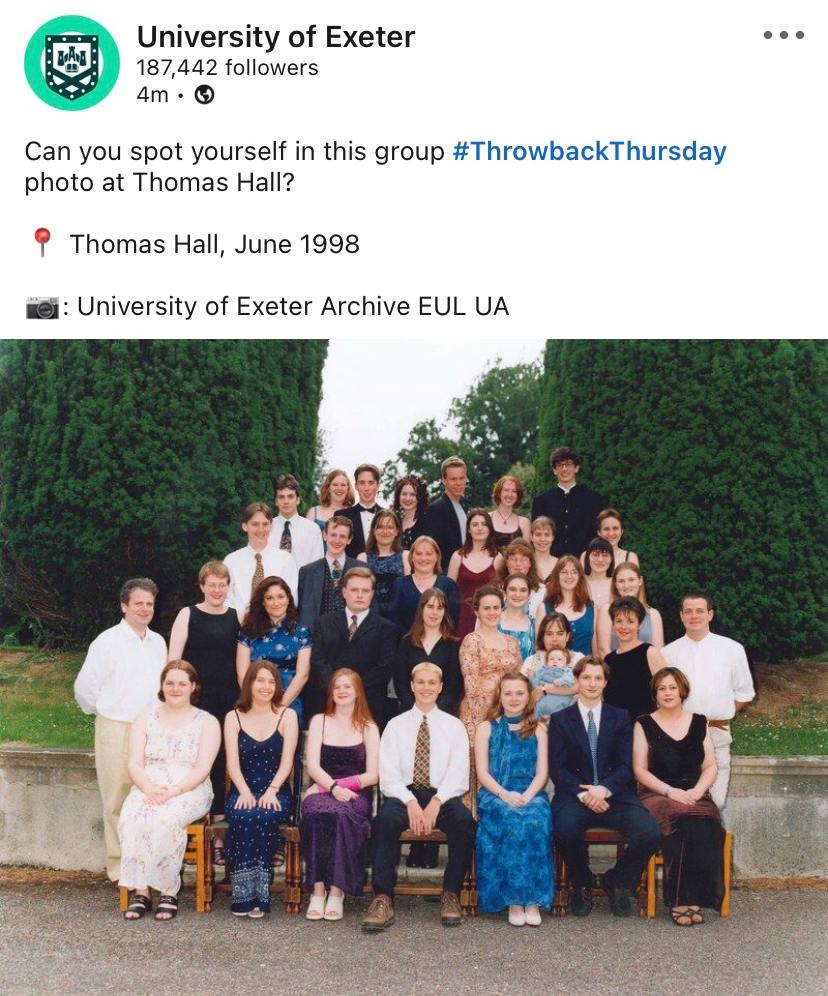
My Deputy News Editor on Exeposé, Dave Tonkin, never returned to journalism. His experiences at Exeter likely gave him considerable doubt about the integrity of the profession.
David Tonkin is one of only two journalists on Exeposé who, as adults. have assisted in providing me with back copies of the newspaper. While Tonkin lacked courage at the time, and did not stand with me against Exeter University when we were students, Tonkin's strength as an adult is clearly much greater. I thank him for his commitment to the truth.
The writing of this article was also supported extensively by another Exeposé writer who is now a journalist for one of the biggest media-outlets in the world. I am indebted to this journalist's tireless work in helping me bring the truth about Exeter University to wider public-awareness. I assured this journalist of their anonymity: As an affiliate of the British Crown, Exeter University poses an ongoing threat to the safety of all students who speak out about their experiences of abuse there.
Other Exeter students have also assisted me in writing this article and, together, we are prepared for Exeter University's inevitable lashing-out at this piece. This time, when Exeter University physically attacks me, I will be better armed. This is one of the many benefits of adherence to a written constitution over a monarchy.
Officially, this is my last article written as a journalist for Exeposé. I hope that, this time, Exeter University will accept my resignation letter more graciously than last.
It's been educational.
- The Guardian Media Awards, 2000.
- "The court heard that Jones had made meticulous preparation to support her false claim. She used tape with which she bound her hands and ankles to add authenticity to her account that she had been assaulted by a stranger late at night on Exeter university's campus." The Guardian, 30th October, 1999.
- "Cry Rape Student Set Free By Uni", by Rich Thurston. Exeposé, 8th November 1999.
- Exeposé, 17th January, 2000.
- Telephone interview conducted with Cat Goodwin / Marshall, January 21st, 2023.
- Follow-up email to Cat Marshall / Goodwin and Julian Marshall, 12 May, 2023.
- The NME, 22nd March, 2003.
- Freud's concept of the 'Compulsion To Repeat' was first described in an article titled "Remembering, Repeating and Working-Through" (In German: 'Erinnern, Wiederholen und Durcharbeiten'), which Freud published in 1914.
- In July 2003, Stuart Little actor Jeffrey Jones pleaded no contest to hiring a 14-year-old boy to pose for sexually explicit photos. Jones was subsequently arrested twice for failing to update his sex offender status.
- BBC Television Technical Operations Department Staff List, 17th November, 1979. Page 4.
- "Jimmy Savile abused up to 1,000 victims on BBC premises. Executives turned a blind eye to attacks...one of which involved a BBC cameraman who has since died, Savile carried out his abuse with others connected to the corporation..." The Guardian 18th January, 2014.
- "Vandalized", Exeposé, 22nd May, 2000.
- "Apology", Exeposé, 5th June, 2000.
- Exeposé, 8th November, 1999.
- Email interview with Nick Warren at the Express and Echo, July 11th-12th, 2022.
- This article was edited on February 2nd, 2026: The names of two minor perpetrators were removed from the article because they no longer pose a significant risk to the public.